Apps for Windows devices
Can Windows apps be managed in Relution?
In the Relution App Store, public apps from the Windows App Store can be imported and managed.
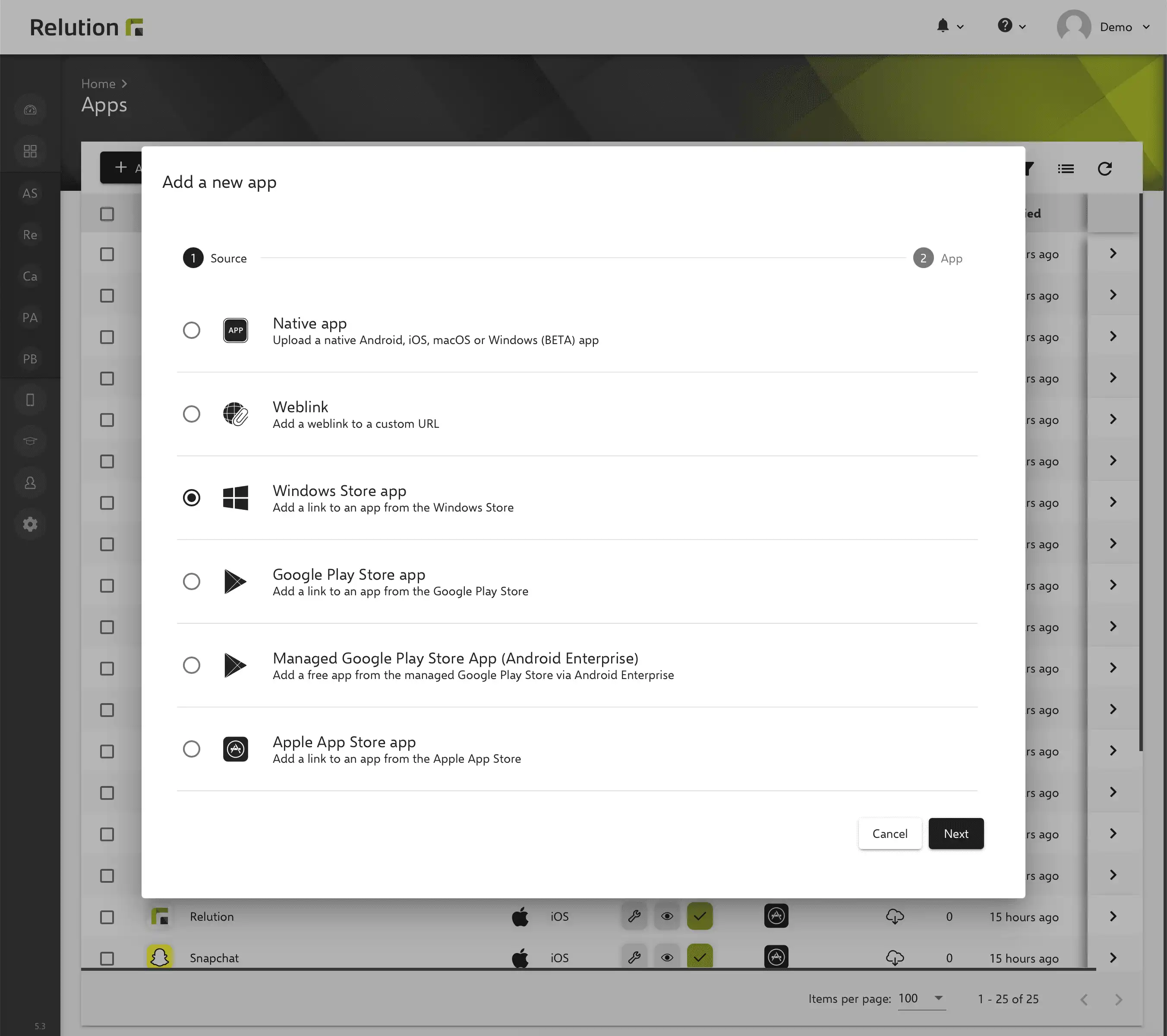
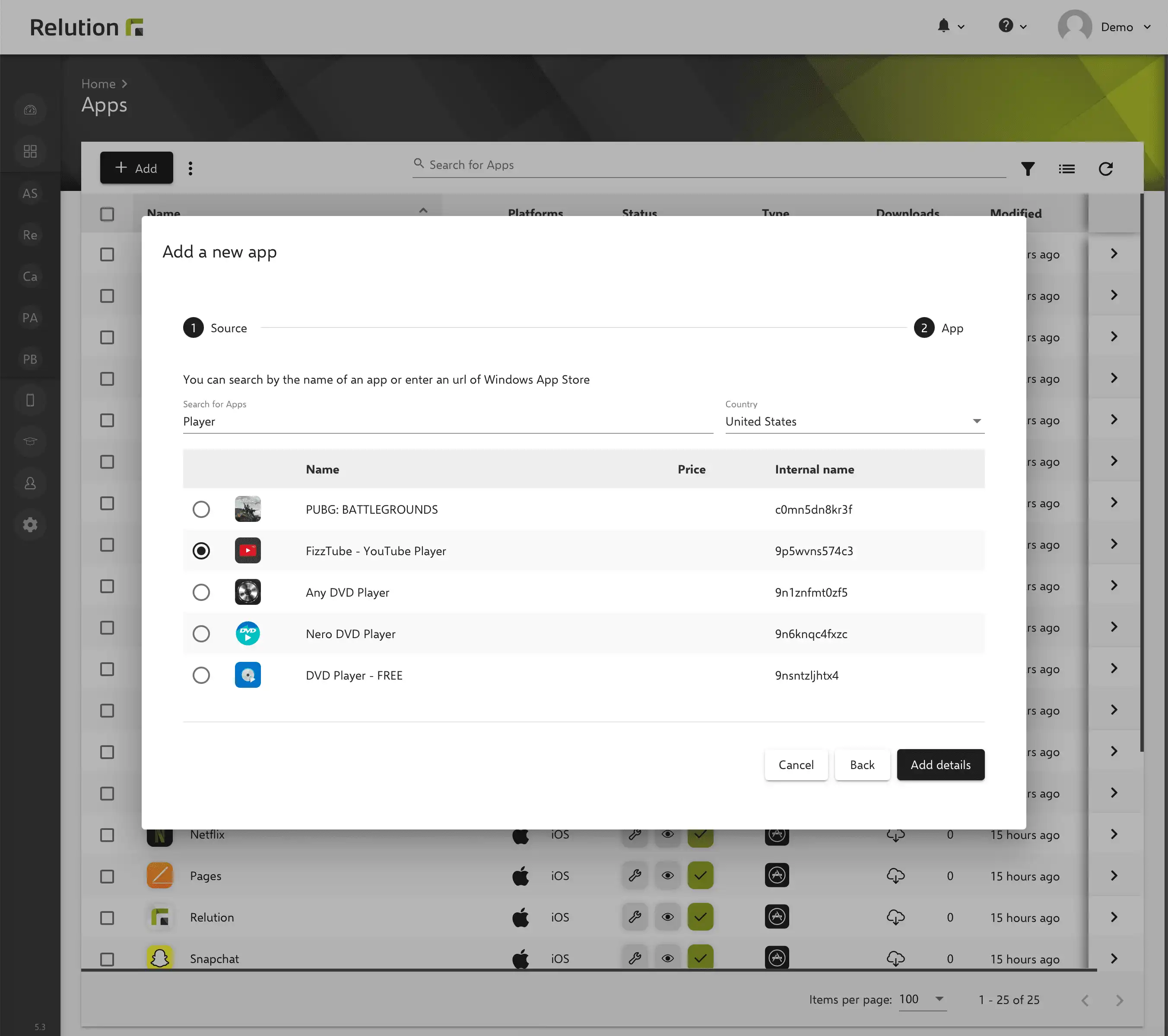
Likewise, Windows modern apps can be imported and managed as native apps in .msix, .msixbundle, .appx, .appxbundle formats.
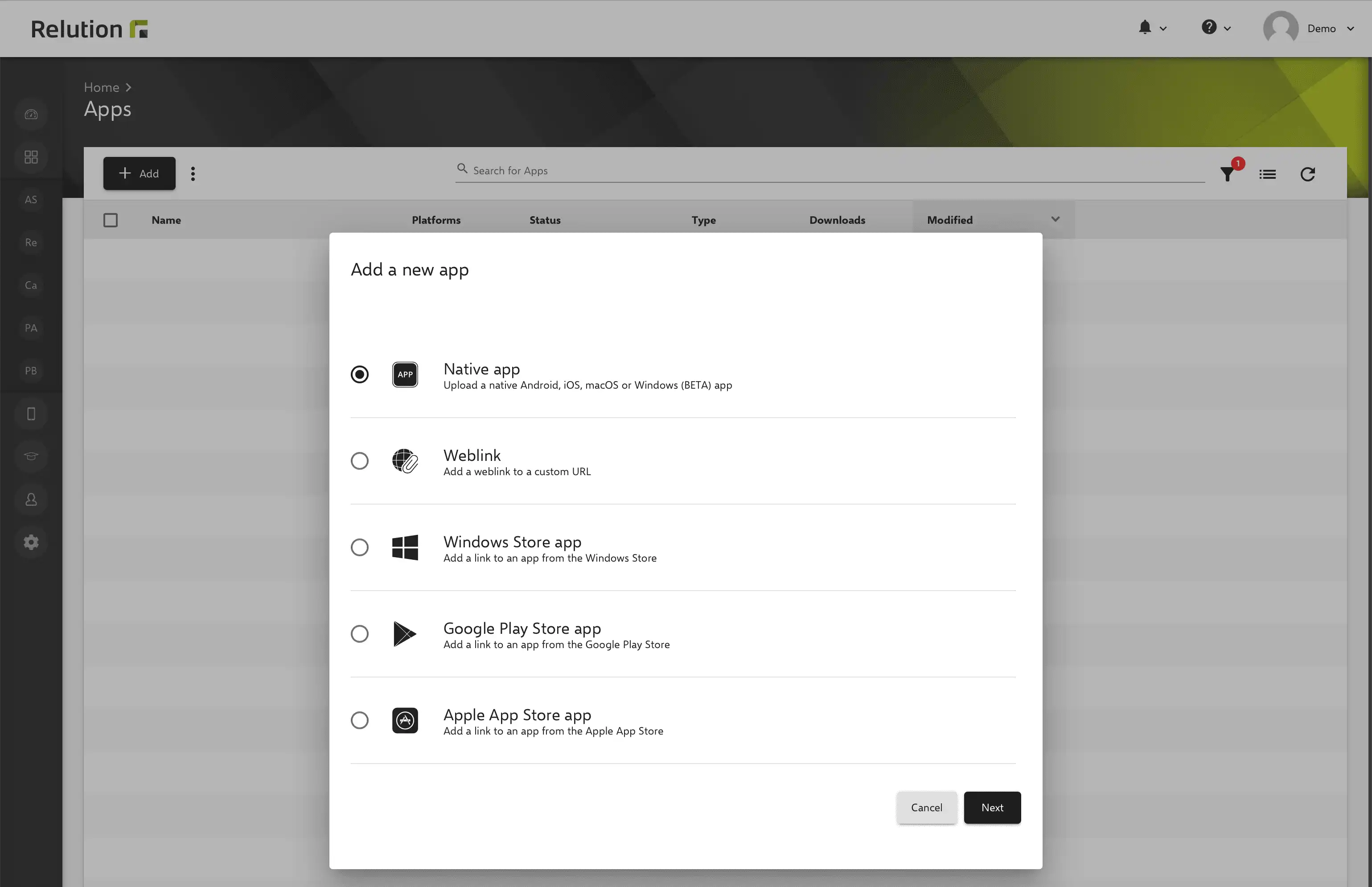
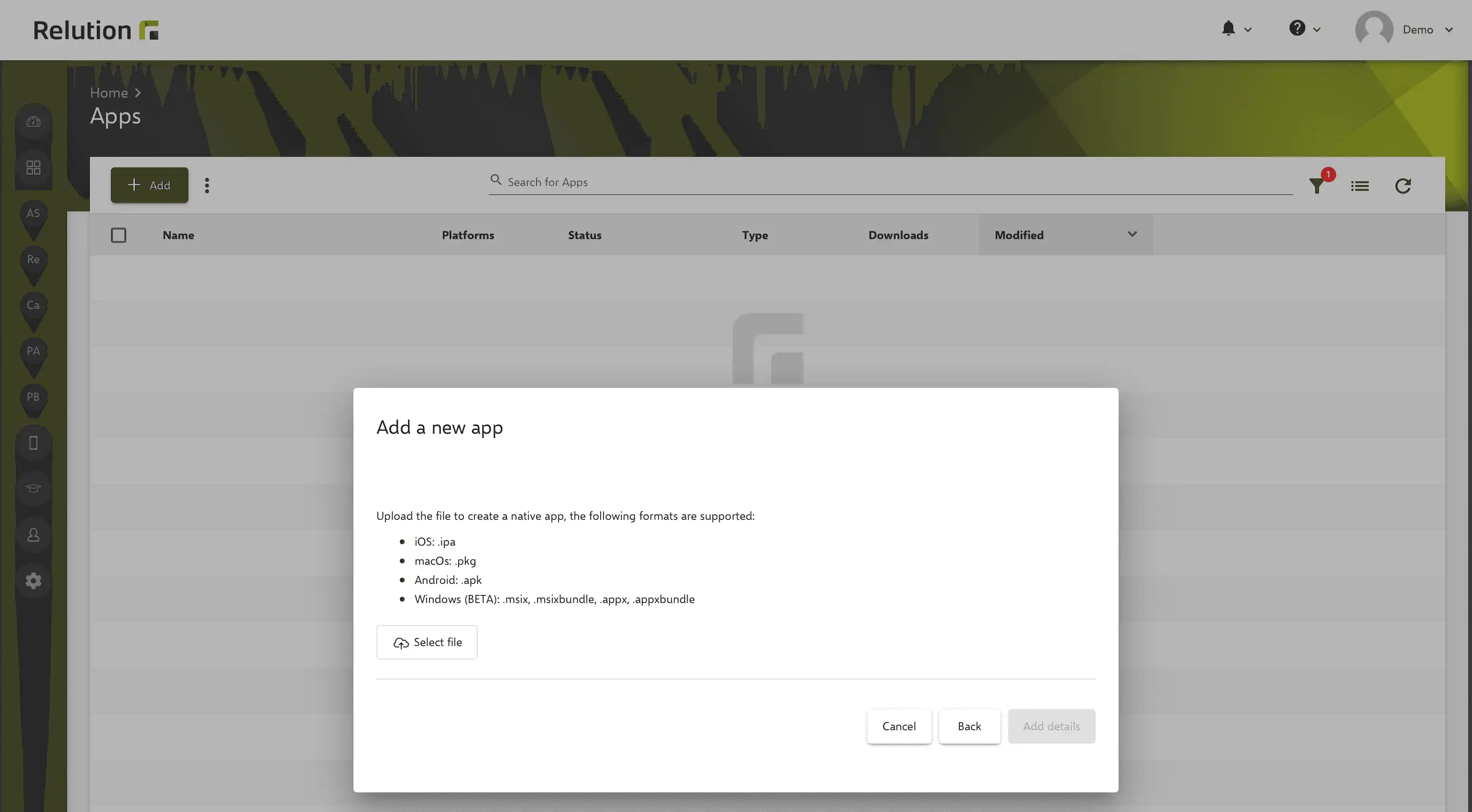
In the Relution App Store overview, imported native Windows modern apps and public apps directly from the Windows Store are managed in the same way as all other apps.
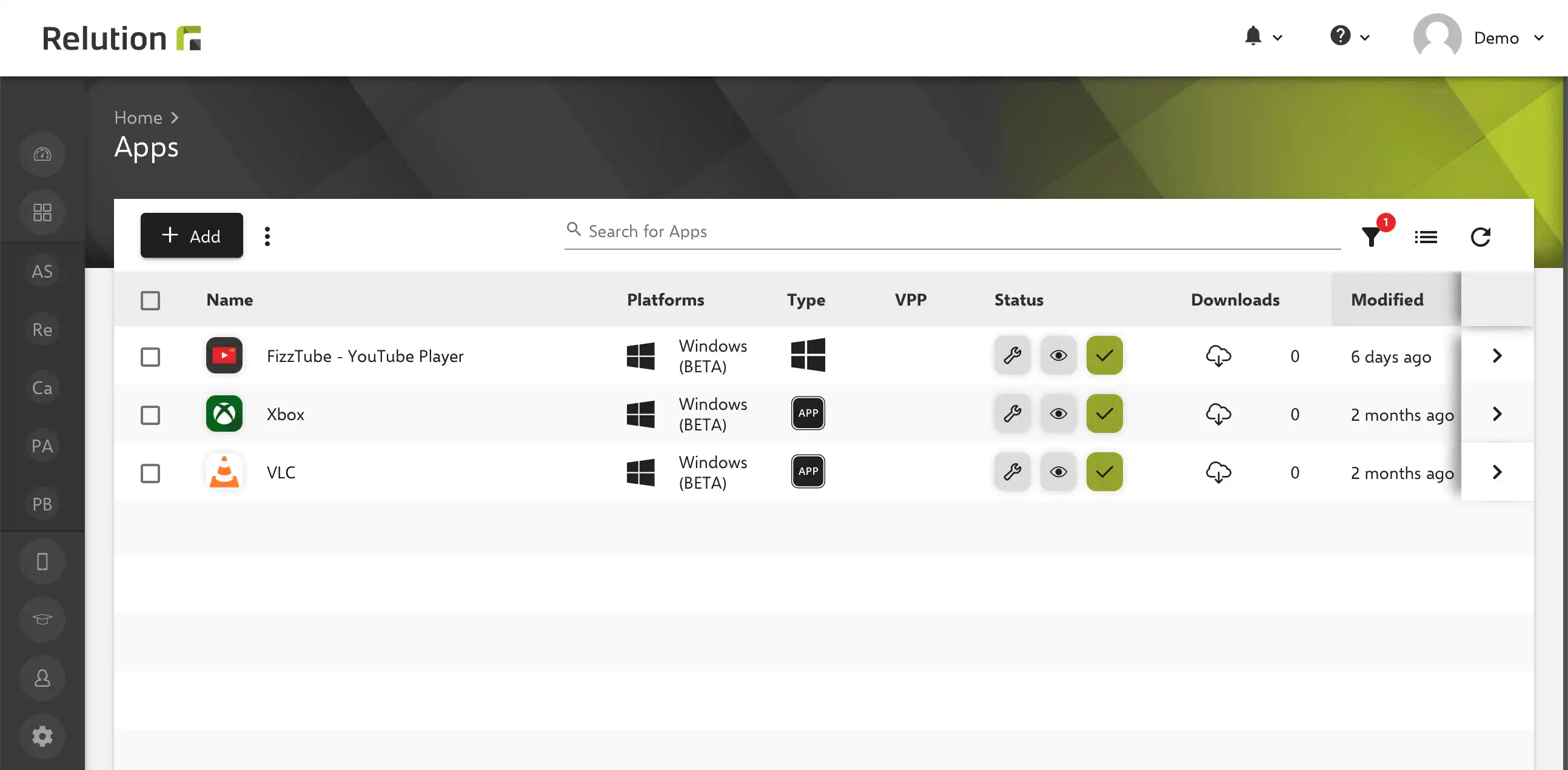
Can Windows apps be installed on Windows 10/11 devices via a policy?
For Windows 10/11 devices, it is possible to install required apps on devices via a policy. With the configuration “App Compliance”, native apps from the Relution App Store as well as public apps directly from the Windows Store can be added.
If the “Auto install” option is selected for an app, the app is automatically installed on the device. Otherwise, the device is listed as incompatible until the app is installed.
Block and allow lists are not supported by Windows 10/11.
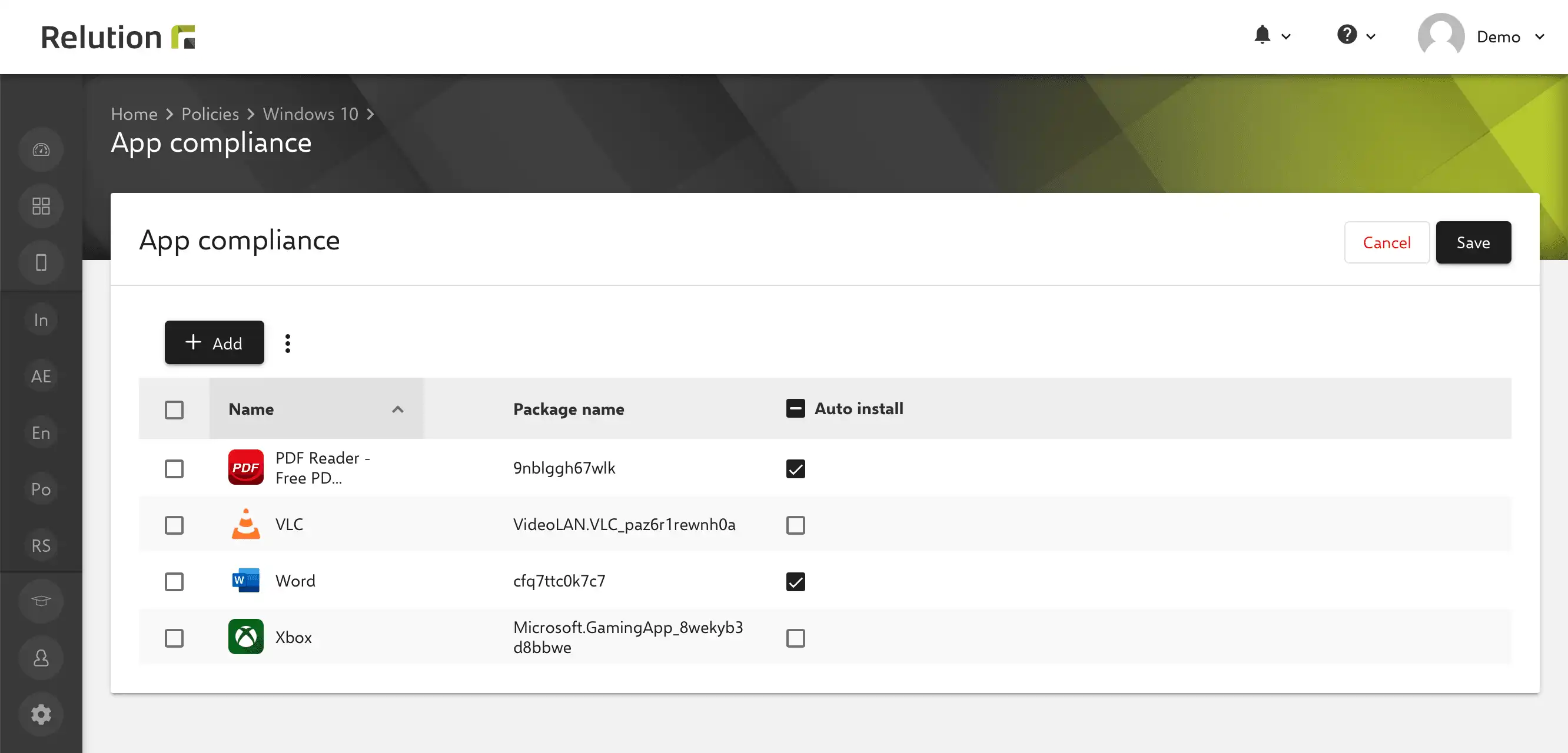
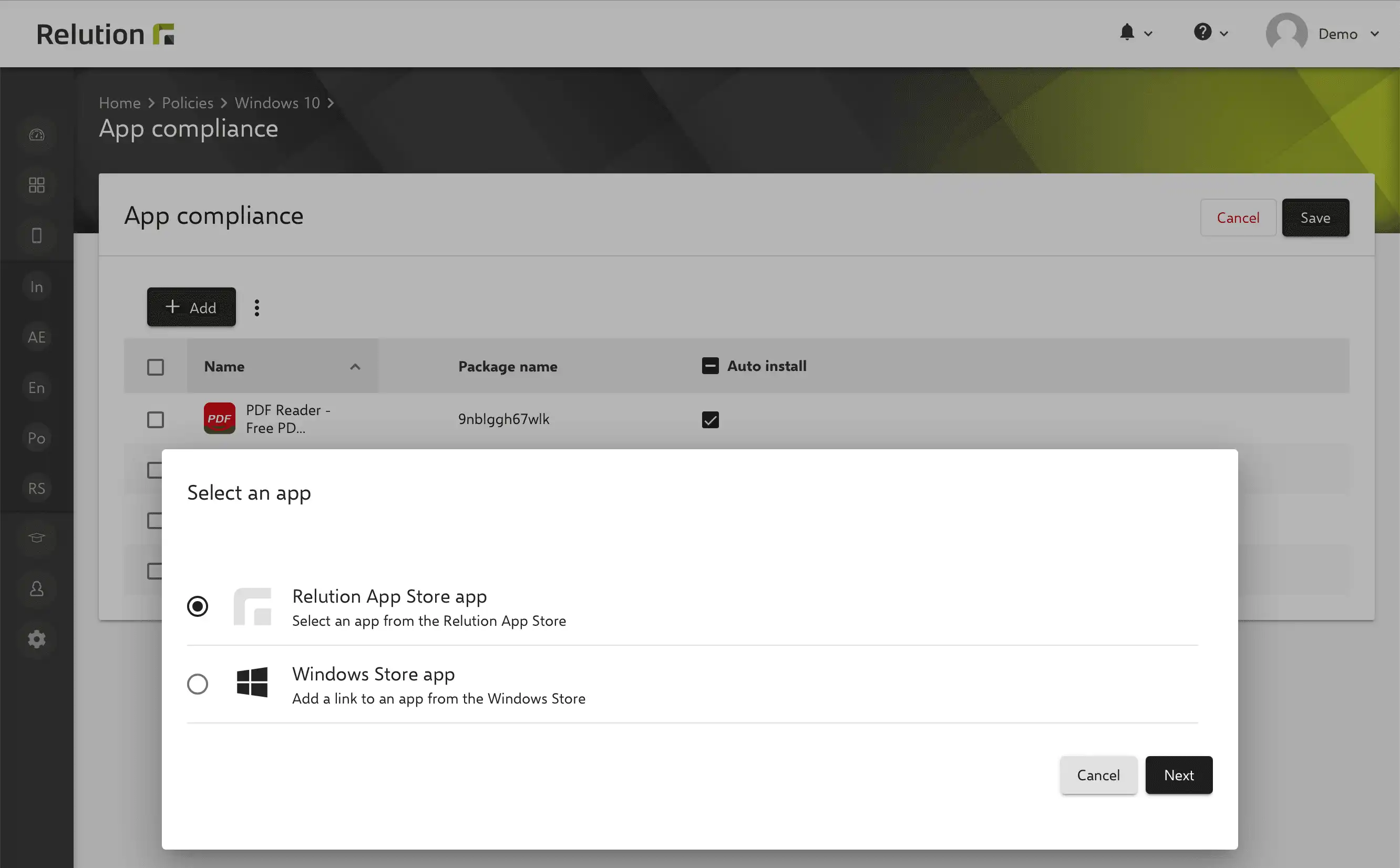
Can Windows apps also be installed specifically on individual Windows 10/11 devices?
Actions can be used to install and uninstall native apps as well as public apps from the Windows Store on enrolled Windows 10/11 devices.
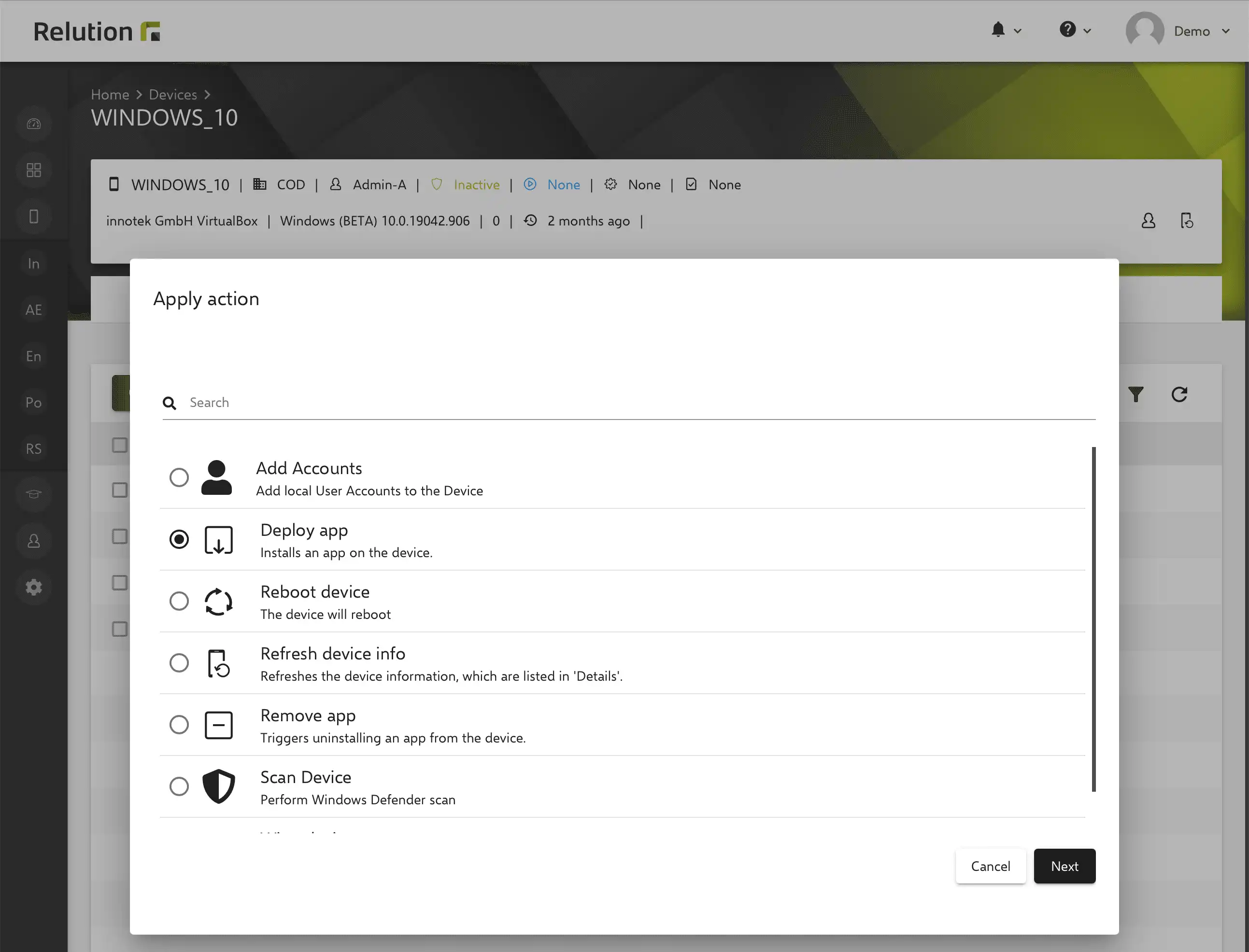
The Windows apps imported from the Relution App Store are available for selection.
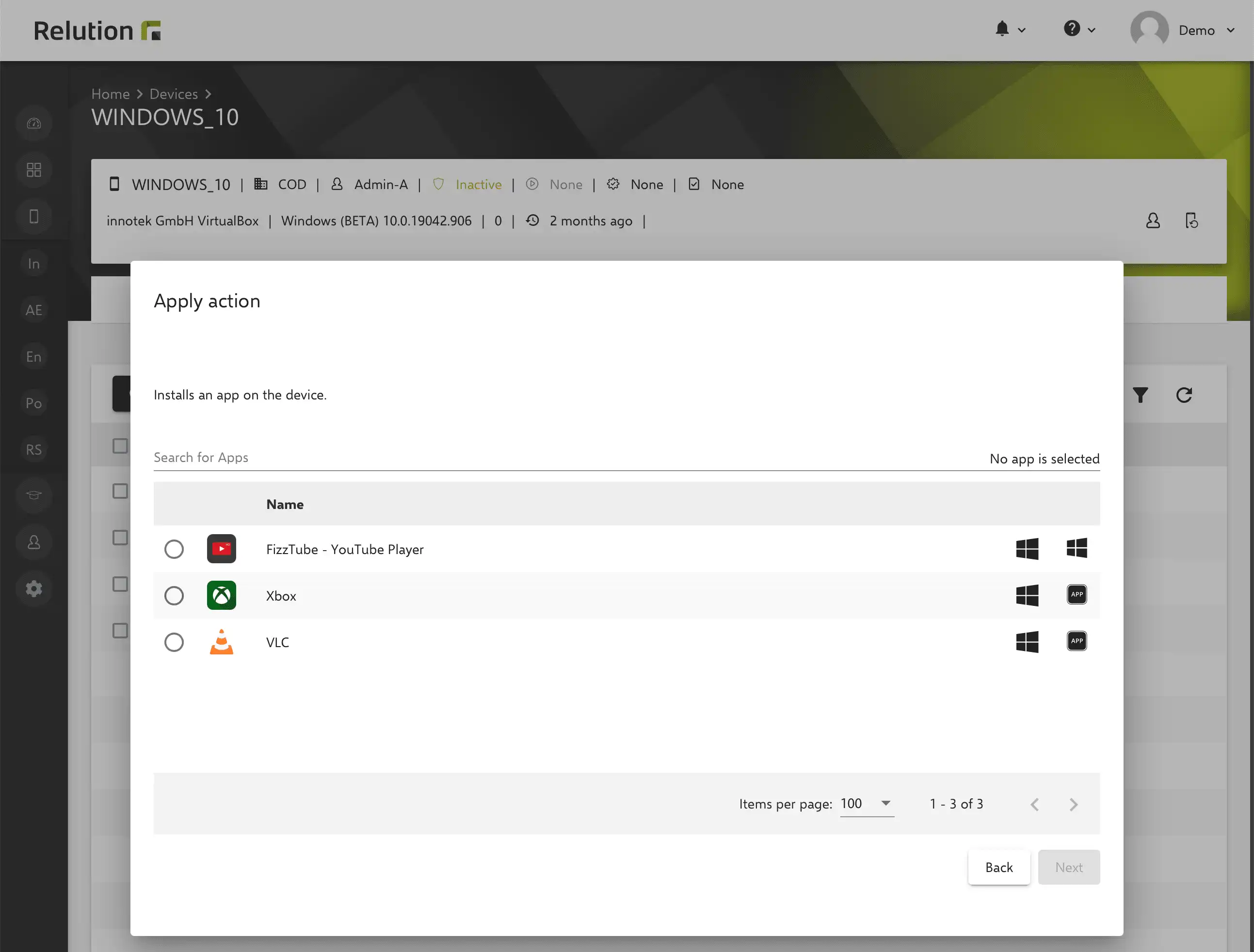
Is it possible to assign Windows apps to individual users or user groups and have them automatically installed on their Windows 10/11 devices?
Relution offers the possibility to distribute apps user-specifically to devices via so-called “auto-deployments”. If a Windows 10/11 device is assigned to a user in Relution, the defined Windows apps for this user are automatically installed on the user’s Windows 10/11 device.
The Windows apps for auto-deployments are stored in the user or group details.
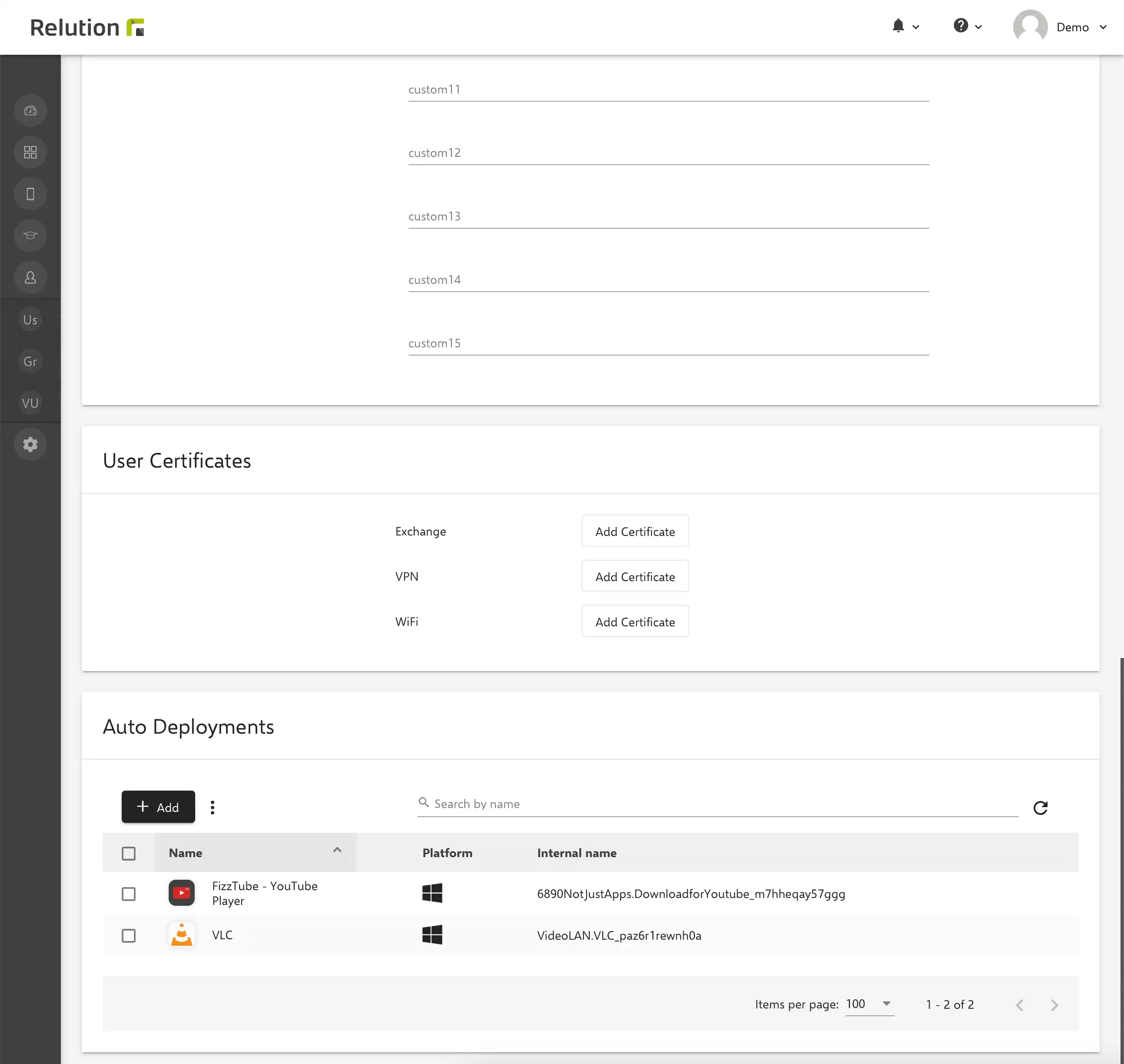
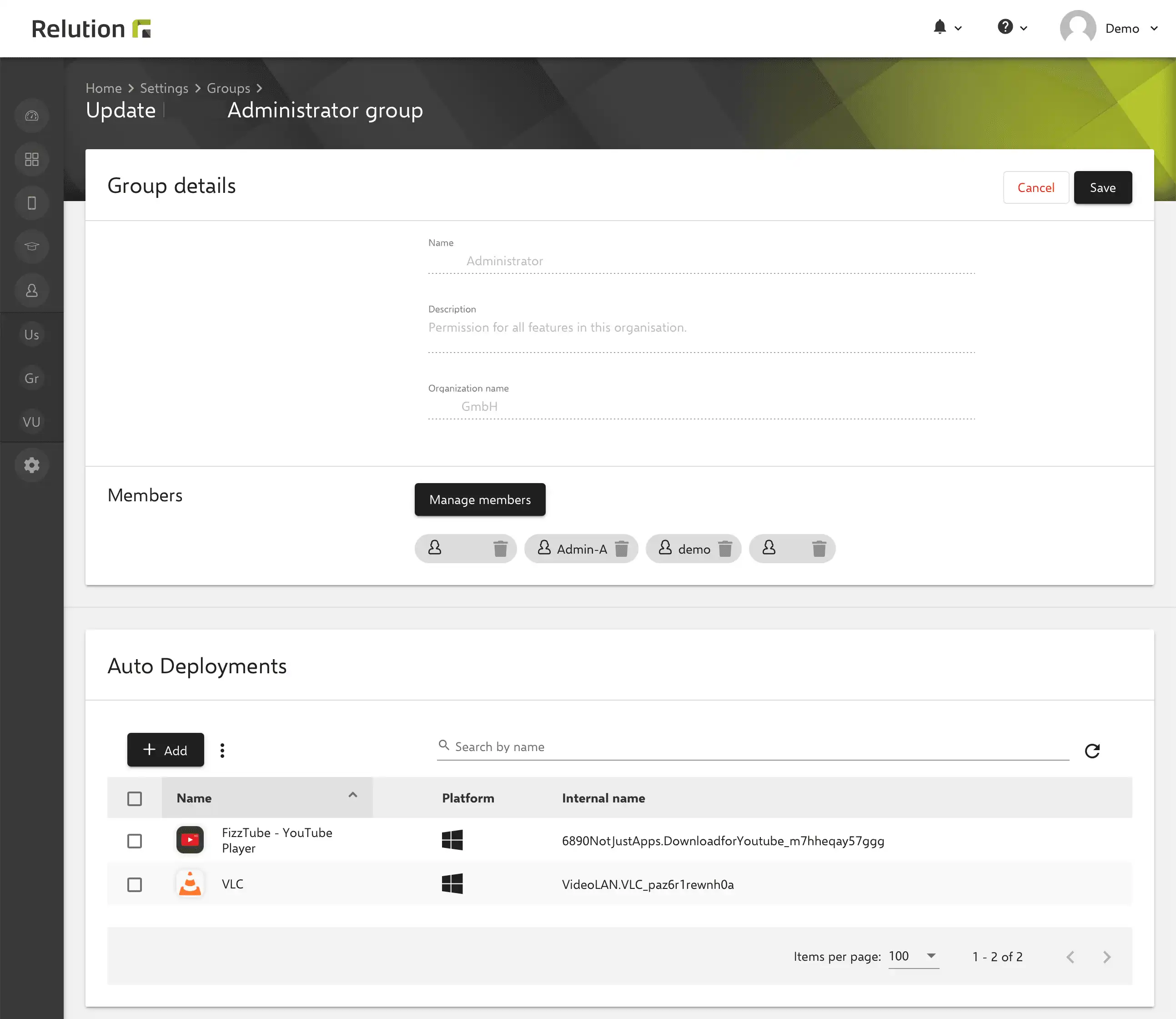
Alternatively, the corresponding user and user groups can be added in the app details of the respective Windows app under settings.
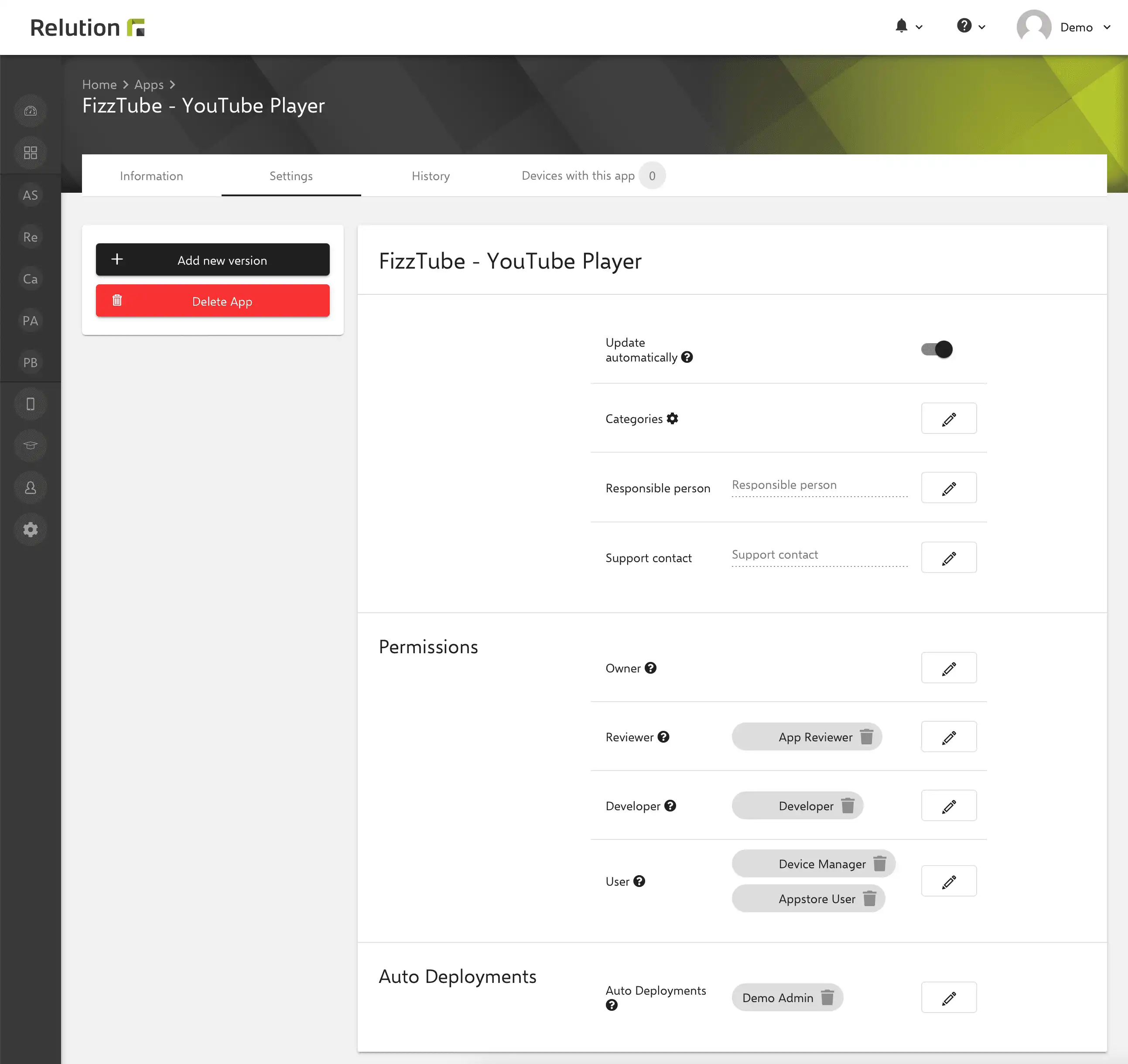
Can classic Windows desktop programs with Relution be installed on Windows 10/11 devices?
To install other formats of Windows apps like .exe files on Windows 10/11 devices via Relution, they have to be converted to MSIX packages. For this purpose, Microsoft provides the MSIX Packaging Tool in the Microsoft Store.
A tutorial on how to convert files to MSIX packages is described in the following blog post.
Can enrolled Windows 10/11 devices be configured with Relution?
Windows 10/11 devices enrolled in Relution can be configured via policies and controlled via actions. See insight Configure Windows 10/11 devices.
How are Windows 10/11 devices enrolled in Relution?
To enroll a Windows 10/11 device, a Windows enrollment must be created and performed in Relution. See insight Manage Windows 10/11 devices.
Will Relution’s Windows 10/11 support be expanded?
With Relution 5, the management of Windows 10/11 devices was introduced. The range of functions for the configuration, restriction and protection of Windows 10/11 devices as well as the installation of applications will be continuously expanded from now on.